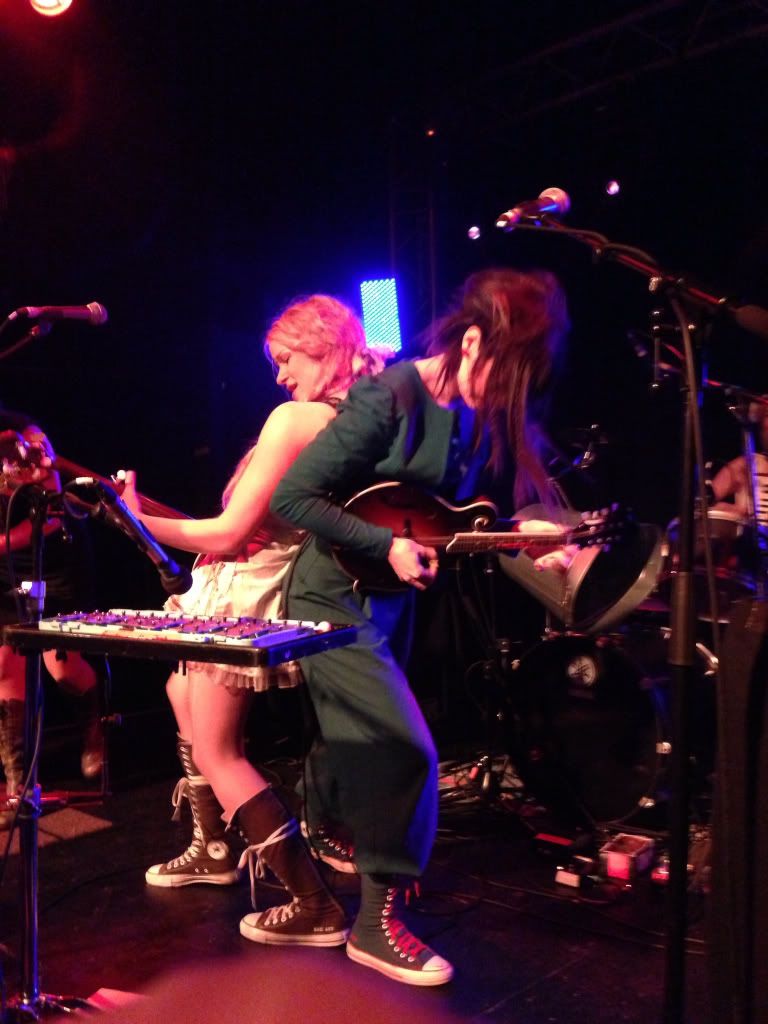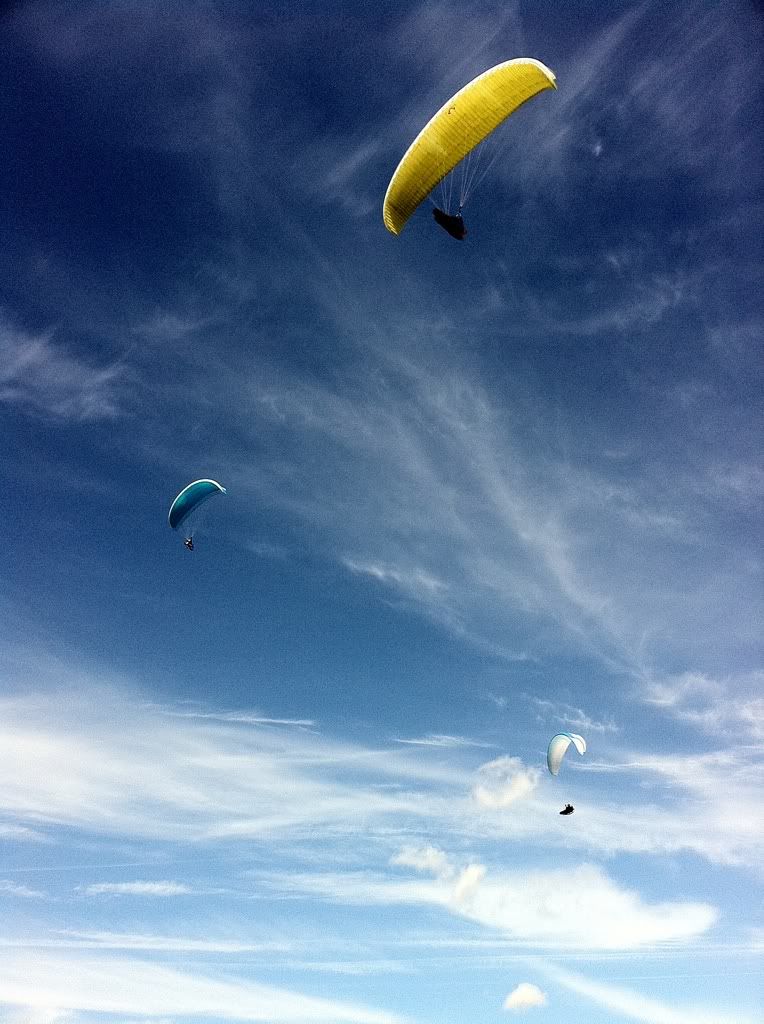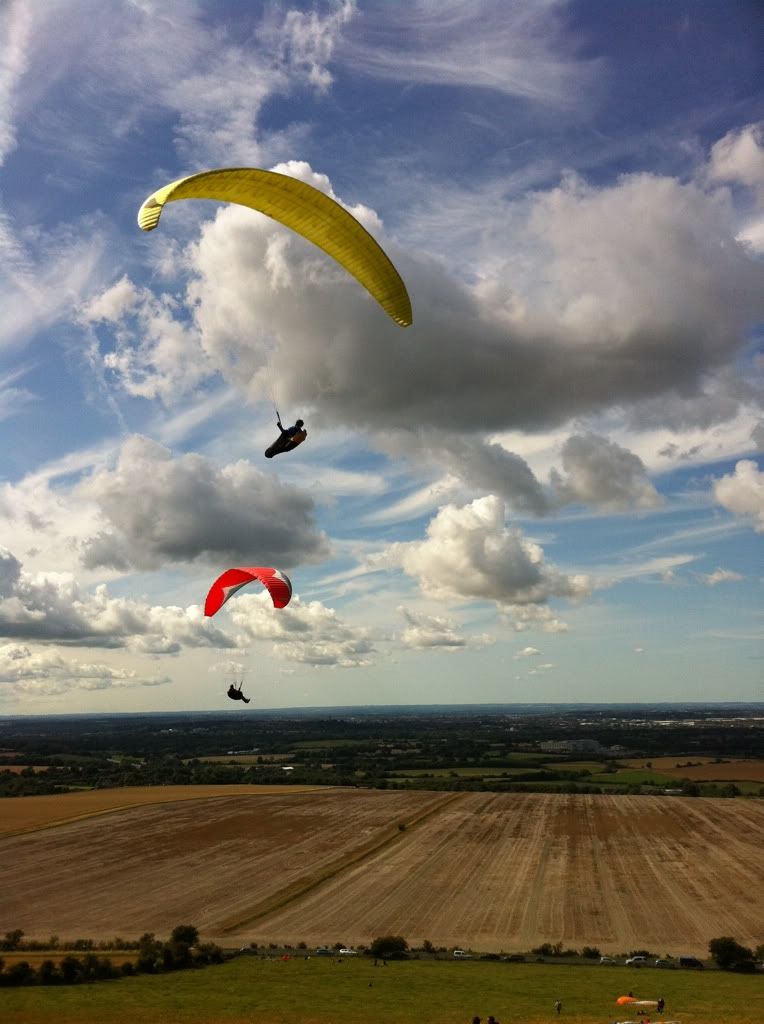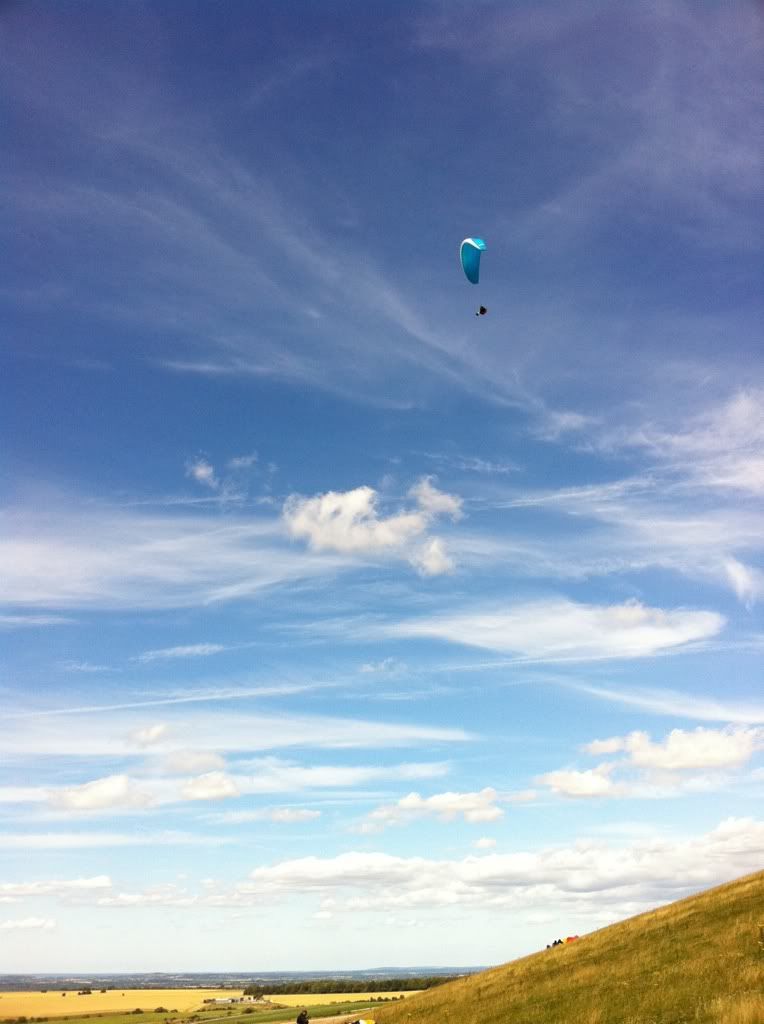Home › Forums › Chat Forum › Wanting To Go Back To Film Cameras
- This topic has 71 replies, 34 voices, and was last updated 11 years ago by Leku.
-
Wanting To Go Back To Film Cameras
-
grantwayFree MemberPosted 11 years ago
Thinking of going back to using film cameras
Feed up of looking at my Mamiya C33
being used as a book endNo mistaking Digital is great, and would be dim to think otherwise .
But the creativity in taking the picture and then in the changing bag
and developing the film and then watching the image come through
in the developer is what Photography is really is about for me.Anyone else gone back to using film ?
For those who don’t know what a Mamiya C33 looks like
 molgripsFree MemberPosted 11 years ago
molgripsFree MemberPosted 11 years agoHell no.
I want to capture images. The easier I can make that the better, the more I can concentrate on trying to be an artist. I have no interest in being a technician 🙂
grantwayFree MemberPosted 11 years agoLOL Molgrips if you want to be an Artist then you need to be creative
and thats what film cameras is all about 😉meehajaFree MemberPosted 11 years agoI bought a film camera as I enjoyed “the process”… It was fun to go back to the “way things were” also It means I take more thought out shots rather than just taking loads
grantwayFree MemberPosted 11 years agomolgrips – Member
Why?Why are film cameras more creative than digital ones?
Photography is all about light which makes the image
and all thats done for you in digital and you don’t make the
mistakes that make you a better photographer with Digital
also another you will learn is exposure etc all this is taken away in Digital.CountZeroFull MemberPosted 11 years agoI’ve done the being stuck in a darkroom, piddling around with stinky chemicals, trying to get the best print from a 35mm negative, two or three hours to get maybe half a dozen reasonable images, quite apart from all the phaff of getting the film into a developing tank and then fixing it. I’m interested in taking photographs and seeing the finished image; if I want to do any image manipulation, spending further hours dodging and burning a print, only to find the finished print hasn’t worked is just wasted, when I can do it non-destructively to a digital image.
And that’s just B&W, colour was completely out of the question, unless I processed Ektachrome or Agfachrome trannies, which then need a viewer.
Unless you scan them, in which case, you might as well shoot digital.
Then there’s all the cost implications of buying film and chemicals and paper.
Digital allows me the freedom to shoot hundreds of photos, and dump lots of duff ones to get a few good ones, without worrying about costs.CountZeroFull MemberPosted 11 years agoLOL Molgrips if you want to be an Artist then you need to be creative
and thats what film cameras is all aboutOh please! Many photographers spend ages getting the image framed, exposure correct, filters set up correctly, all in digital, without having to fanny around with technical processes. It’s about creating an image, the camera is just a tool.
MrSmithFree MemberPosted 11 years agoWhat a load of twaddle. Film is just another way of making images.
Anyone else gone back to using film ?
no. Been there, done that. It’s a faff that I have no real desire to revisit (done the whole 10×8, 5×4, hand dev and print, compensating developers, cold cathode, fibre base, split, selenenium as well as c41/e-6)
molgripsFree MemberPosted 11 years agoalso another you will learn is exposure etc all this is taken away in Digital
That really is complete rubbish.
Yes, my digital camera has automatic exposure, but so has every film SLR from the last 30 years.
In reality, taking pictures is very very similar in both film and digital. The main difference starts once you get back home and start ‘developing’. Oh and the fact you have virtually unlimited ‘film’.
Most keen photographers have done film, it wasn’t that long ago – so we are well familiar with both!
SandwichFull MemberPosted 11 years agoPhotography is all about light which makes the image
and all thats done for you in digital and you don’t make the
mistakes that make you a better photographer with Digital
also another you will learn is exposure etc all this is taken away in Digital.Pish you’ve not seen my under/over-exposed digital photos. You need to be as deliberate as with film and as precise as using transparency film as the exposure latitude is similar.
bencooperFree MemberPosted 11 years agoFilm is way too modern – you should be using glass plates, with the emulsion poured over yourself. If you haven’t done your own emulsion, you’re not a real photographer.
Alternatively, it’s the image that matters – how you get there is irrelevant.
freeagentFree MemberPosted 11 years agoas everyone else said – been there, done that. Have spent days in the darkroom messing about with enlargers and trays of stinky chemicals – and loved every minute of it, however times have changed, and like everyone else, I’m only really interested in getting to the end result as quickly/cheaply/cleanly as possible.
I shed a tear when I sold my old medium format kit a couple of years back, but it was never going to get used again.
The Nikon FG kit will be next to go on ebay. ;o(molgripsFree MemberPosted 11 years agoAs for making mistakes – the mechanics of capturing light on film or a sensor are pretty simple really.
I’m more worried about making the mistake of taking a cliched shot that I’ve seen a million times before. I try to capture interesting and striking images (got about 3 so far 🙂 ). Film or digital makes absolutely no difference in what I do, but one is massively less convenient and a lot more expensive.
I bought a digital camera in 2001 and kept my film for best as it was better quality – the digital cam was 2.1 megapixels. I never used the film cam again until I broke the digital one. I took it on a road trip round the SW USA. Gobsmacking scenery, and when I got home I developed a load of gobsmacking images mostly slightly out of focus. Some kind of issue with my lens apparently. It’s not like I could go back, so from an amazing trip I had about 2 photos that were good if you didn’t look too closely.
Yeah, those were the days 🙄
I have 0 photos taken from film on my walls, mainly due to the faff of getting enlargements and whatnot. I have several from my 2.1mp cam and many from my 8mp cam.
bencooperFree MemberPosted 11 years agoYup, you can make loads more mistakes quickly and cheaply with digital 😉
seba560Free MemberPosted 11 years agoAlternatively, it’s the image that matters – how you get there is irrelevant.
While I generally disagree with this sentiment, I wouldn’t want to work with all those nasty chemicals either.
nedrapierFull MemberPosted 11 years agoin digital[…] you don’t make the
mistakes that make you a better photographer with DigitalI think the best way of becoming a photographer (light painter/capturer of images) is to take loads and loads and loads of photos.
The more you take the more you learn, the more time you’ve spent poring over 10, 20, 50 similar images of the same subject, the more you learn about how lighting, perspective, focus, depth of field etc. affect the shot and how you can manipulate these better to create the effect you’re after.
Digital lets you do that much more easily and much more cheaply than with film. And more reliably, now there are fewer and fewer film labs with decent processing around.
butcherFull MemberPosted 11 years agoLike the others, I couldn’t be chewed dealing with film full time. When I had a film camera I would never get round to getting stuff processed. But I still love the organic imperfection of film shots and I like the idea that it encourages you to think about the shot, given that each one is costing you money.
Film and digital can be creative in different ways and can equally be creative in exactly the same way. It all comes down to what you make of it yourself. Digital is just more convenient on so many levels. But that only makes it better if you value that convenience.
molgripsFree MemberPosted 11 years agoI like the idea that it encourages you to think about the shot
The whole reason I bought a DSLR was to think about the shot.
Don’t compare happy careless digital snapping with actual photography. If you are a thoughtful photographer it won’t matter what format you are using.
bencooperFree MemberPosted 11 years agoDigital does sometimes encourage “spray and pray” – the technique of holding down the shutter on rapid fire, and hoping you get something decent.
And often you do get something decent. But you rarely get something good.
PePPeRFull MemberPosted 11 years agoHey it’s not about the light or any of that bollix, it’s about the kit innit! Lovely C33, I’ve got a lovely C3.and a big collection of Rolleiflex.
MrSmithFree MemberPosted 11 years agoI think the best way of becoming a photographer (light painter/capturer of images) is to take loads and loads and loads of photos.
That achieves nothing apart from loads of pics if you can’t edit or understand what makes a successful* photograph.
I know plenty of photographers who shoot many thousands of mediocre images a year and no ‘keepers’ that learn nothing through that process.*successful as in achieving the kind of image you wish to create
umop3pisdnFree MemberPosted 11 years agoI have a halina 35x which I use to mess about with. I’m no photographer, but it entertains me, means I take more photos and the odd one turns out looking quite good, so it suits me.
igmFull MemberPosted 11 years agoI miss film, the slower pace of it, making mistakes during developing and finding that rescuing images sometimes gave the most striking shots, but they pulled down the lab at the local college and doing it at home is too much of a faff. Got the kit in the attic though for when the kids are older and I have more time.
One thing I’m starting to think is that modern kit is so good that it’s the deliberately imperfect shots either in composition, timing, light, processing or clarity that often capture the attention and hold it longest. Of course that may always have been true.
molgripsFree MemberPosted 11 years agoDigital does sometimes encourage “spray and pray” – the technique of holding down the shutter on rapid fire, and hoping you get something decent
Ok but surely the person who sprays and prays is not likely to suddenly become a careful artist if you put a film camera in their hand, are they?
Likewise, someone who would think carefully about their photography with film isn’t suddenly going to stop caring and become a chimp as soon as you put a digicam in their hand.
Different groups of people.
RustySpannerFull MemberPosted 11 years agoHave 8 film bodies sat upstairs gathering dust.
They don’t produce any better images than my DSLR, they cost more to use and I can’t preview the results.Have a Pentax Spotmatic that is a beautiful thing to use, but I neve do. Nice ornament, that’s about it.
I’ve got rid of my enlarger and all my dark room equiptment – it turned out to be worthless, so I gave it away.
I like vinyl records as I prefer the sound they make.
Can’t see a similar payoff with film anymore.colournoiseFull MemberPosted 11 years agoPhotography (and all visual art for that matter) is about the idea and getting that into visual form. How you get there REALLY doesn’t matter.
If you really want to get the feeling you got from film then develop the self discipline to shoot as sparingly with digital as you would with film and limit your post-processing to what you could achieve in the darkroom. Saves all the hassle and mess, and I say that as someone who used to love getting the chemicals out (and teaching others how to do it to).
Personally, I only get halfway there. I avoid using any continuous shooting modes on my cameras and try to limit myself to only a few shots of a given subject (even just one if I’m feeling properly serious about it). I do like the processing freedom digital gives me though – I trained as a painter and love the fact I can now easily explore the same visual ideas I used to in painting using photographs and a laptop.
skiFree MemberPosted 11 years agoIf you are thinking of a C33 double check the slow shutter speeds on the lens and check for fungi damage those lens are getting on a bit now, even the latter 330s are hard to find with clean usable optics.
The worst thing you can do with old mechanical shutters is leave them on a shelf and not use them 😉
(edit) I might have my old para finder adjuster still for those cameras in my attic somewhere, let me know if it might be of interest ?
bencooperFree MemberPosted 11 years agoOk but surely the person who sprays and prays is not likely to suddenly become a careful artist if you put a film camera in their hand, are they?
No, but they’ll quickly run out of money, and then go find a hobby more suited to their personality 😉
nedrapierFull MemberPosted 11 years agoThat achieves nothing apart from loads of pics if you can’t edit or understand what makes a successful* photograph.
Fair enough. Perhaps I should have added, “and then spend a good deal of time analysing why one photo is better than the ten or twenty similar ones you took, and using that resulting knowledge to improve your eye and technique next time you’re out with the camera”
Thought I’d done that with my following paragraphs. Perhaps I could have been clearer, perhaps you got a bit selective-quotey-internet-argumenty on my ass. I think we’re on the same page though.
CountZeroFull MemberPosted 11 years agoAs various people have said, irrespective of what I’m taking a photo of, and taking it with, I’ll take care about framing and composition, and exposure when I can, as I’m usually using my Lumix TZ30 or my iPhone. If I can’t ‘see’ the picture in the screen, that I think will make a worthwhile photo, then I won’t bother taking it. It’s a bit different at gigs, where I’ll shoot lots of photos, but without using ‘burst’ mode, because people and lighting are changing and moving all the time.
Not every photo is perfect, but close enough to keep me happy; I’m not making a living from my photos.
I do virtually zero post-processing, as well, as I’m fundamentally a lazy bastard, and if a pic looks pretty much how I wanted it to look, then that’s fine.
I might square up a photo, or improve contrast, but that’s about it.
This one is far from perfect, but I really like the moment that was captured, and the lighting in the Thekla is pretty iffy.
Could I have taken it on film? Quite probably, but I would also have gone through three or four 36-shot films, with no idea what I’d got until I’d handed over a significant amount of money; those pics I was able to see as soon as I got home and copied them onto my iPad from the camera card, then I could just delete the really crappy ones, with no worries about cost. I actually stopped taking photos for the best part of a decade, because of the prohibitive cost of processing and printing. Digital has totally rekindled my love of photography, and now I always have a camera of some sort with me.
And this is a good example of the best camera is the one you have with you. I’d gone out for a bit of a drive around, and spotted some paragliders in the distance when I was at Barbury Castle. Checking the map on my phone, I drove over to where the were flying from, which was fairly late in the afternoon.
The only camera I has was my iPhone 4, so I took what I could with that. I was pretty chuffed with the results, as I was guessing them, having contacts in, and no reading glasses!

 user-removedFree MemberPosted 11 years ago
user-removedFree MemberPosted 11 years agoDone. To. Death. But I still feel the need to comment :-). When I did my degree it was fully analogue. Since then, I’ve been fully digital for paid work but still shoot B+W film regularly. Would never go back to the larger formats though – 35mm is fine.
Since my STW sub ran out, my bathroom reading has been, ‘The birth of photography’ and it’s given me the urge to try a spot of tinplate process.
Might also set up a darkroom in the studio this year – would love to shoot a full wedding on B+W film and produce an album full of fibre based prints. Must be a market for it…
TheArtistFormerlyKnownAsSTRFull MemberPosted 11 years agoMaybe not the best qualified to comment, as I’ve never had a proper film camera (1990’s compact with processing at Boots obviously discounted).
However, I have some images that I cherish that I know wouldn’t have been captured had I been using film. That’s argument enough for me in favour of digital.
grantwayFree MemberPosted 11 years agoWow mix bag of views
freeagent – Member
as everyone else said – been there, done that. Have spent days in the darkroom messing about with enlargers and trays of stinky chemicals – and loved every minute of it, however times have changed, and like everyone else, I’m only really interested in getting to the end result as quickly/cheaply/cleanly as possible.But I don’t care about anyone else thinks or feels.
Cost is irrelevant for one, and was asking if anyone else had or using film cameras
and yep had me own Darkroom etc.
And yes I do have a digital camerasBut interesting feed back
joemarshallFree MemberPosted 11 years agoWhilst there were obviously some art photographers who took pictures on film by painstakingly setting everything up and taking a single perfect shot, I bet that ninety percent of the professionally shot pictures of the film era were done with a scatter gun approach, taking a few rolls of film to get the perfect image. I @ean look at old sports slrs with their motor winders and gubbins. Digital just means that everyone can use the approach that realistically was used for pretty much any action photography in the past (and probaply for most other professional shots too for that matter).
oliverd1981Free MemberPosted 11 years agoOf course if you want fast lenses /shallow depth of field / full frame you can get a lot more bang for your buck with a 35mm camera… A proper 35mm camera is lots more fun than a lomo.
ampthillFull MemberPosted 11 years agoI’m in the been in a dark room and produced recognisable pictures. But I can do so much more in digital, so much better
Thinking about the people who’s stuff i enjoy looking at on Flickr I’d say using a tripod is a common feature. Its a common antidote to the sraying photos approach. Combined with a neutral density filter for a really long exposures and a plate field camera looks quick and easy.
Another tip that I was given was not aim for alot of output
1 a month is good going for a landscape photographer
This cobined with the advice that its better get one good shot than many poor has helped alot. Especially with patience in post processing
Inspitation. To me at least
http://www.flickr.com/photos/leechypics/page1/
http://www.flickr.com/photos/ianbramham/
PS if film works for you, go for it
The topic ‘Wanting To Go Back To Film Cameras’ is closed to new replies.
